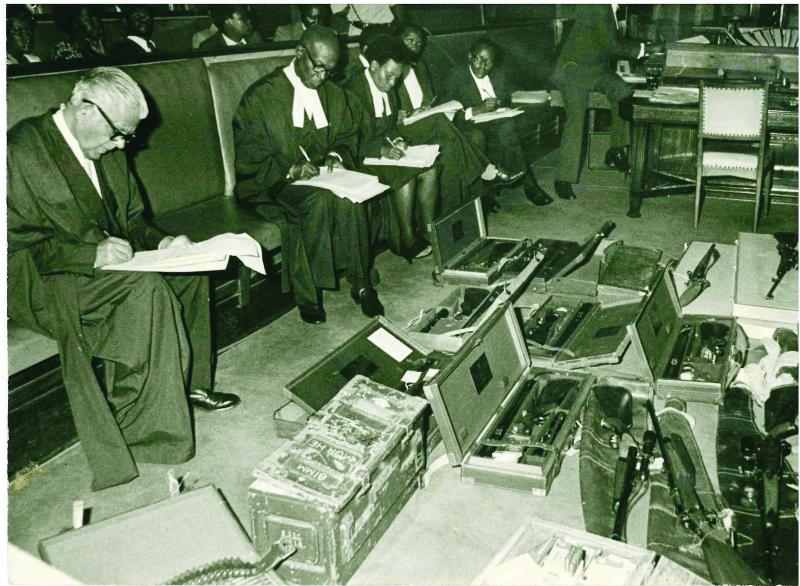×
The Standard e-Paper
Stay Informed, Even Offline

Guns were presented as evidence to the commission of inquiry that Njonjo was involved in a plot to destabilise Kenya. [ Archives, Standard]
On August 2, 1984, lawyer Lee Muthoga deployed 26 different but related questions to squeeze out the truth on claims that former constitutional affairs minister Charles Njonjo bought off former Kikuyu MP Amos Ng’ang’a from his elective seat.